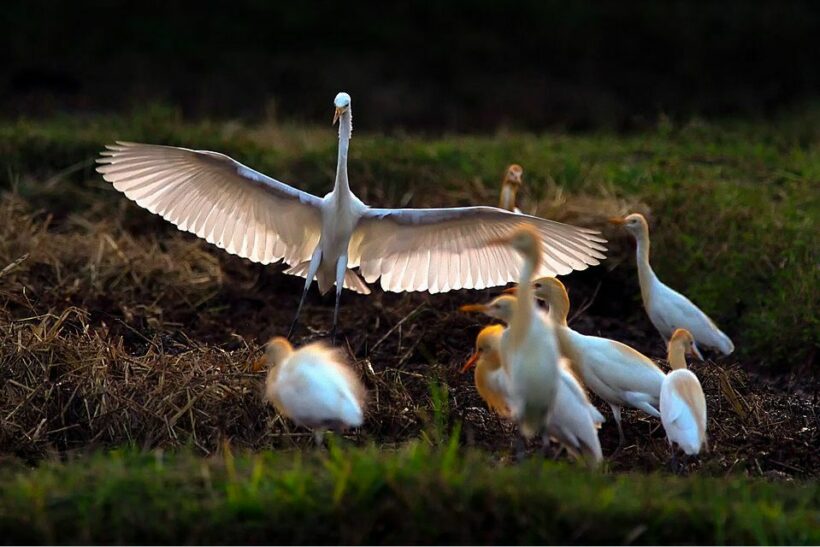Storks take over mango farm in Ang Thong, owners put property up for sale

The owner of a mango plantation is throwing in the white towel after her farm was overrun by storks. The 20-hectare farm in the central Ang Thong province is now up for sale, and the owner says that the farm can no longer operate thanks to the new residents.
The birds came 3 years ago, according to what the owner Kannikar Supradit told Thai PBS. Now the land is home to tens of thousands of Asian openbill storks. She says that they are roosting in almost every mango tree on the property, and as a result are damaging the fruit. She says that she is losing half a million baht worth of revenue per year because of the birds, and is being forced to sell her land.
When the storks first arrived, Kannikar tried to seek help from the Department of National Park, Wildlife and Plant Conservation, who suggested cutting down all of her mango trees so that the birds would have nowhere to roost. She tried removing a few trees, but the strategy did not work and the storks have even been growing in number. The heavy rains of monsoon season have resulted in some of the storks making their homes in her roof, and filling the house with the smell of their droppings.
The president of the Bird Conservation Society of Thailand Kaset Sutacha described how these storks are typically migratory birds. But in central Thailand, they have begun to live year-round because many rice fields are full of snails and other abundant sources of food. Rice farmers like the birds because they eat the snails which harm their rice crop, he explains. But fruit plantations view them as pests because their acidic droppings can kill fruit trees.
Kaset also said that these storks are a protected species, and killing one could lead to a 40,000 baht fine and up to 4 years in prison, so other methods have to be employed to chase them away. Sometimes fruit farmers resort to water sprinklers, bright lights and hanging used CD’s in the trees to scare the birds off.
SOURCE: Thai PBS
Latest Thailand News
Follow The Thaiger on Google News:


























